Sort by:
1–16 of 55 Results
-
5 x? Chlamydia Rapid card Test? Chlamydia trachomatis Antigen Rapid test kit. You will received: 5 x? Chlamydia Test card Device 2 x? Buffer Reagent Solutions 5 x Vaginal sterile? Swabs 5 x Extraction Tubes 1 x Instructions For Use Guide to the use of your home test kits for STDs (please read the instructions entirely before performing your test) For all the test kits provided: 1. Check to make sure the pouch seal is not damaged to expose the contents 2. Store at room temperature or refrigerate at 2-300C if you are not ready to test. Do not freeze 3. The test kits must remain in the seal pouch until use 4. Do not use beyond expiration date. Sample collection and preparation for chlamydia tests Always be ready and make sure you have uninterrupted time to perform the test, it takes some few minutes. Before you start, get familiar with the contents of the test kit: a. Test cassette b. Extraction reagent? 1 or A (with NaOH written on it) c. Extraction reagent? 2 or B (with HCL written on it) d. Extraction tubes e. Sterile female cervical swabs f. Dropper tips 2. Follow the steps below to collect sample. Note that the quality of your sample is as good as your result Female sample collection a. Use the sterile swab provided b. Remove excess fluid or mucus from the endocervical area (endocervical is the passageway from the inside the uterus to the vagina. c. Insert the swab into the endocervical area until most of the tip of the swab is no more visible d. Firmly rotate the swab round in one direction, it can be clockwise or anticlockwise e. Leave it inside for 10 seconds and then take it out. Do not let the swab touch vaginal walls or skin as much to avoid contamination. Perform the test immediately. Male sample collection. 1. Before sample collection, do not urinate for at least a period of 2 hours 2. Insert the swab into the urethral orifice of the penis to about 2-4cm 3. Rotate the swab round in one direction 4. Leave it inside for 10 seconds 5. Take it out and perform the test immediately by following the steps below: Performing the test a. Remove the cassette from the pouch b. Add 5 drops of reagent A (colourless) to the extraction tube c. Immediately insert the sample swab into the extraction tube. Compress the swab to the bottom of the tube and rotate the swab 15 times d. Leave it for 2 minutes e. Now, take reagent 2 and add 5 drops of it to the extraction tube with the swab f. The solution will change colour to turbid. Compress the swab to the bottom again and rotate the swab 15 times until the solution turns clear with a slight green or blue shade g. Leave it for 1 minute h. Press the swab against the size of the tube and withdraw the swab while squeezing the tube. Keep as much liquid in the tube as possible i. Cover the extraction tube with the dropper tip j. Place the cassette in a clear level surface and add 3 full drops of the extracted solution to the sample well/hole (labelled S on the cassette) k. Time it for 10 minutes and wait for a colour to appear l. Read the results after? 15-20 minutes. Do not read the results after 25 minutes. Discard? all used test kits appropriately. Test illustrationSku: 1725741469-316
5 x Chlamydia Rapid Tests
₦390.00 -
Accurate, easy and convenient to perform You will receive: 5x pregnancy test strips pouchedSku: 1725741462-315
5 x Diagnos Pregnancy Test Strips
₦0.00 -
Hepatitis B One Step Private Test Strip One step rapid test kit for the determination? of Hepatitis B surface antigen. Easy and convenient to perform using finger prick whole blood, serum or plasma You will receive: 5x Hepatitis B Surface Antigen test strip pouched 1x hepatitis B whole blood buffer 5x finger prick? blood lancets 5x alcohol swap pads 1x user instruction manualSku: 1725741452-313
5 x Hepatitis B One Step Private Test
₦90.00 -
First Response 5 x HIV 1-2-0 Self-Test Cards You will receive: 5 x self-test kits each containing: Test device with desiccant Dropper or specimen transfer device Alcohol swab, dry swab Bandage Sterile lancet Buffer solution Biohazard bag Instruction for use Contains one self-test device per box 5 boxes of self -test kitsSku: 1725741449-312
5 x HIV 1-2-0 Self-Test Kits
₦534.00 -
Human Herpes 1 & 2 rapid test kits You will received: 5 x Herpes Test Cassettes 5 x Buffer Solution pack 5 x Capillary Tubes 5 x fingertip blood collection device 1 x Instructions for UseSku: 1725741472-317
5 x Human Herpes 1 & 2 Tests
₦600.00 -
OraQuick HIV Self-Test- Oral swab ? no blood You will receive: ? 5x? test device in? pouches 5x Preservatives 5x Test stands 5x Developer Vials 1 x instructions for useSku: 1725741444-311
5 x OraQuick HIV Self-Tests
₦966.00 -
One Step Rapid Gonorrhoea Test kits You will receive: 5 x? Gonorrhoea Test card Devices 2 x Reagent Solutions 5 x Vaginal /Male Urethral Swabs 5 x Extraction Tubes 1 x Instructions For UseSku: 1725741438-310
5 x Rapid Gonnorrhoea Tests
₦480.00 -
-
Chlamydia Private Test You will receive: 1 x chlamydia test cassette pouched 1 x buffer solution A 1 x buffer solution B 1 x sterile swab 1 x sample dropper 1 x user manual What Is Chlamydia, Why Get Tested at Home? Chlamydia is a common sexually transmitted disease (STD) that affects women and men alike. When not treated properly, Chlamydia can cause serious complications. The problem becomes even more severe if we bear in mind that most people are not even aware they have this STD. The importance of getting tested for Chlamydia is undeniable, and now it has become easier than ever to do so. How we get Chlamydia? Like other STDs, Chlamydia is transmitted through direct contact by having unprotected oral, vaginal, or anal sex with an infected person. Chlamydia can also spread through genital contact alone. A vast majority of people experience no symptoms of Chlamydia, but they can still spread this STD to someone else. This could explain why the prevalence of this common problem keeps growing. While every sexually active man and woman can develop Chlamydia, some are at a higher risk than others. Common risk factors for Chlamydia include: History of STDs Having sex without a condom Being sexually active before the age of 25 Having multiple sex partners within a year What are the symptoms of Chlamydia? As mentioned above, many people don?t experience symptoms at all, especially when this STD is in its early stages. Generally speaking, symptoms develop one to two weeks after exposure to the bacteria during sexual intercourse. Men and women experience Chlamydia differently. Also, the severity of the symptoms may vary from one person to another. Symptoms of Chlamydia in women usually involve: Urgent need to urinate Discomfort when urinating A large amount of vaginal discharge often yellow and foul-smelling Low-grade fever Bleeding between periods Painful sexual intercourse Burning sensation when urinating Swelling in the vagina or around the anus In most men, Chlamydia manifests itself through pain and burning sensation when urinating, swelling and tenderness of the testicles, and penile discharge.? Allschoolabs chlamydia slkvh-lasjbvls-j How often to get tested? Symptoms of Chlamydia are uncomfortable and have the ability to disrupt a person?s quality of life. The problem with Chlamydia in countries like Allschoolabs is that the disease can spread due to a lack of public awareness. The healthcare system doesn?t do enough to raise the awareness of Chlamydia and other STDs. As a result, many men and women don?t understand the absence of symptoms doesn?t mean there is no Chlamydia and they may unknowingly spread it to someone else. When not treated in a timely manner, Chlamydia can lead to various complications, particularly in pregnant women. You should get tested for Chlamydia once a year, especially if you are a female, under the age of 25, or you started having sex at a younger age, don?t use condoms, have a history of STDs. If you tend to switch sex partners, it is also recommended to get tested for Chlamydia more often. It is also important to mention that if you already have Chlamydia, you should get retested after three months. The reason is simple; getting retested helps determine whether you have spread the infection to someone else or got infected again. Why get tested at home? Back in time, there were not many options to discover whether you have Chlamydia or not. You would need to book an appointment to see the doctor who ordered tests to be done. The whole process is time-consuming due to wait periods, inadequate healthcare system. When you add to the inefficacy of healthcare, the social stigma surrounding sexually transmitted diseases Chlamydia, it becomes evident why many people do not get tested. The consequences are felt on the national level as more people unknowingly spread Chlamydia to their sex partners who then go on and transmit it onto someone else, the circle keeps going. Most people across the world, including Allschoolabs, do not understand all the aspects of Chlamydia, and they have false security that they?re safe or won?t get it. Everyone can raise public awareness by starting making changes in their lifestyle first. Home testing can help make it happen. What is the purpose of a home test, you probably wonder? Can it really discover whether I have Chlamydia? The home test for Chlamydia is, therefore, the ideal solution for men and women who want to learn whether they have this problem or not in the privacy of their home. All that?s necessary is to get the test; no need to schedule an appointment, travel to GP?s office, wait, do the test, come back for results, and feel uncomfortable the whole time. Home tests take away the discomfort from learning whether you have Chlamydia or not. This is a discrete way to be proactive about your sexual health and, in case you have Chlamydia, to avoid spreading it to someone else. If the result shows you have Chlamydia, you can see your doctor and get the necessary treatment, and that?s it. The best thing about the Chlamydia test is the fact it?s quick. Results are available fast and with the highest accuracy. Therefore, you can be confident that the results you see are true, reliable, and available to you only. The chlamydia home test is also easy to use. A few simple steps are necessary to get the sample and get tested ? no complicated and time-consuming maneuvers. Getting tested for Chlamydia is a responsible thing to do, and now people can do it without leaving their homes. A few years back, this wasn?t possible, which possibly led to an increased incidence of Chlamydia. Now you have the opportunity to take control of your sexual and reproductive health. Don?t wait! Get Chlamydia test today and get rid of the stress, discomfort, and other negative emotions that would usually arise before going to the GP?s to get tested. References: https://www.medicalnewstoday.com/articles/8181.php#symptomsSku: 1725741038-258
Chlamydia Private Test
₦102.00 -
Chlamydia Test From One Step One of the sneakiest STI infection is definitely chlamydia. It?s extremely common, research shows. In 2017, 708,569 such cases were recorded. The analyses showed that there is a 22% increase in people infected compared to the same analyses back in 2013. Plus, there is a high possibility that not everyone with chlamydia has been diagnosed or recorded. One of the most infected ages is those between the ages of 15 and 24. Who Has the Highest Chance of Getting Chlamydia? It?s very easy to get infected with STIs, especially chlamydia. These are the individuals that have the highest possibility of contracting chlamydia: Anyone younger than 25 Having unprotected intercourse with people who?ve had many sexual partners Contracting it from someone who already is infected Not using condoms during intercourse After having intercourse with someone with a history of STIs (even if they are not currently infected) In other words, Chlamydia spreads. It can be contracted via oral, anal, or vaginal sex. It can even infect the eyes if they?ve been in contact with the infected fluid (vaginal fluid or semen). However, the infection can?t spread by simply kissing, sitting on toilet seats, touching doorknobs, bathing in hot tubs, or sharing clothes and silverware. Typical Symptoms of Chlamydia Most people have no idea they have it. In fact, statistics show that 70% of men and 90% of women experience no symptoms at all. For others, the symptoms are mild, not something that takes their attention. But, for others, they can cause serious problems. Some of the most common symptoms of chlamydia are the following: Painful Intercourse An uncomfortable burning sensation when peeing Pain in the lower abdomen Excessive discharge with a powerful smell Bleeding when not on period Pain, bleeding, or discharge from the anus Why Do You Need to Get Tested? Chlamydia is a serious infection that shouldn?t be overlooked. However, the moment you realize you have it, it might be too late. If you fail to get treated on time and efficiently, it can cause infertility, pelvic inflammatory disease, and damaged fallopian tubes. While the infection itself is easily treatable, it can?t undo the damage that was already done on the reproductive system. If you lose your fertility due to chlamydia, there is no going back. It doesn?t matter how healthy you might feel right now if you?ve had unprotected intercourse, it?s crucial to get tested and receive proper treatment.Sku: 1725741028-257
Chlamydia Test
₦102.00 -
-
-
First Response? HIV 1-2.O Card Test (Self-Test) You will receive: Test device with desiccant Dropper or specimen transfer device Alcohol swab, dry swab Bandage Sterile lancet Buffer solution Biohazard bag Instruction for use Contains one self-test device per box Contact us for wholesale price.Sku: 1725740659-212
First Response? HIV 1-2.O Card Test (Self-Test)
₦114.00 -
The Use of Home Tests for Gonorrhea ?Each year, there are more and more Gonorrhea cases, and even worse, there are more cases where Gonorrhea has led to terrifying health issues. And yet, practicing safe sex and getting tested for Gonorrhea and any other STDs seem to be a lot difficult for the people of Allschoolabs. Because this is a topic like many others that people do not like to talk about, people lack the knowledge that they need to protect themselves against these difficult diseases or even get tested and treated in time. Today, we explore the importance of home tests as an alternative to the tests that are done at the medical facilities. Are the home tests an effective way to get your condition diagnosed? What is Gonorrhea? Gonorrhea is a sexually transmitted disease caused by a bacterial infection with the bacterium Neisseria gonorrhoeae. It is transmitted through unprotected oral, vaginal, or anal sex. Gonorrhea can also be transmitted during pregnancy and delivery. The best way to protect yourself against Gonorrhea and any other sexually transmitted disease is always to use a proper contraceptive ? preferably a latex condom. The number of new Gonorrhea cases grows each year. According to the latest research, back in 2017 in Allschoolabs, the prevalence of Gonorrhea cases was 6.6% within women, and 3.5% within men. Left untreated, Gonorrhea leads to infertility, damage to the heart muscle, pelvic inflammatory disease, inflammation to the lining of the brain and/or spinal cord, ectopic pregnancy, etc. Gonorrhea is treated using antibiotics and abstaining from sex to prevent the infection from spreading. What are the symptoms of Gonorrhea? The first symptoms of Gonorrhea are expected to occur within two weeks after exposure. There are also certain individuals that do not develop any noticeable symptoms at the beginning of the infection. They pose a great threat since unaware, and they can easily spread the infection to another partner with whom they engage in unprotected sex. The first symptom in men is usually a burning/painful sensation during urination. Further symptoms include swelling of the testicles, swelling and redness of the opening of the penis, increased frequency of urination, and white, yellow, or greenish discharge of the penis. Among women, the symptoms usually include a watery, greenish discharge from the vagina along with heavier periods, painful or burning sensation during urination, pain during sexual intercourse, fever, etc. Why get tested for Gonorrhea? Testing for Gonorrhea will help protect you from the harmful risks that are to come with this bacterial infection. It will also help prevent it from spreading to any other individuals with whom you would engage in unprotected sexual intercourse of any kind. All adults that are sexually active are advised to test for Gonorrhea and other STDs, at least once a year or more, depending on their lifestyle. Please do get tested for Gonorrhea as soon as possible if: You engage in unprotected sex; You have multiple sexual partners; You engage in unprotected sex with a person who has present Gonorrhea symptoms; You are a man who engages in sex with other men; You have had Gonorrhea before; You are pregnant; You have other STDs; You are experiencing any Gonorrhea symptoms. Why use a home test for Gonorrhea? Because talking about STDs, including Gonorrhea, is considered to be a taboo in Allschoolabs, but also because of the high Gonorrhea rates, the home test for Gonorrhea is the perfect solution. The home test for Gonorrhea allows you to check for any Gonorrhea signs before any symptoms have developed and helped protect yourself against any of the risks that this disease is known to carry with itself. A home test is offering you a chance to find out if you have Gonorrhea while enjoying the privacy of your home. Although Gonorrhea testing, when done in a medical facility, is usually covered by medical insurance, sometimes there is no opportunity for this testing to take place, or simply many people feel more comfortable when they are doing this in privacy even if it costs more. Gonorrhea is diagnosed by a urine sample and vaginal swap (for women), and this is the principle that the self-test providers follow as well. With the difference, that is, that the self-test is offering you privacy. You are still recommended to consult your doctor about your results. A self-test kit usually comes with either a vaginal swap or a urine sample. Rectal and throat swaps may be available, as well. You take your own sample following the provided instruction, which you will later send over to the laboratory. Usually, the results come after around 72 hours, notifying you if you have tested positive or negative for a Gonorrhea infection. Not to worry, the laboratory facilities are all certified; the tests are FDA-approved, and they all come in the most discreet packaging to ensure the highest privacy possible. If you have tested positive, it is of vital importance that you inform your doctor and your partner with whom you have most recently engaged in sexual intercourse of any kind. If you have tested negative and still experience symptoms of any kind, you are still advised to consult your doctor in order to find out the cause for those symptoms. Home tests are the answer to your prayers. Now you get to test and find out whether or not you are in need of treatment for Gonorrhea or not in just a couple of hours. Take the easy home test and send the sample; the results come after 72 hours with a low cost and high accuracy. Do not let Gonorrhea pose a threat to your health and to the health of your partner. Get yourself informed, get tested today! References https://www.cdc.gov/std/gonorrhea/stdfact-gonorrhea.htm https://journals.plos.org/plosone/article?id=10.1371/journal.pone.0205863 https://www.ncbi.nlm.nih.gov/pmc/articles/PMC5354566/ https://www.mayoclinic.org/diseases-conditions/gonorrhea/diagnosis-treatment/drc-20351780Sku: 1725740521-199
Gonorrhea Private Test
₦102.00 -
Gonorrhea Test Kit From One Step Gonorrhea is an extremely common STDs that can easily spread through oral, vaginal, and anal sex as long as a person is in sexual contact with an infected individual. Pregnant women can transfer this infection to their unborn child, particularly when giving birth. Anyone is exposed to it, but the most vulnerable ones are those between the ages of 15 and 24. However, those older than that can still get infected. Common Signs of Gonorrhea Very few people actually notice the symptoms of the infection. But, most don?t experience any. As a result, many individuals are unfamiliar that they are infected. This puts others at risk. The only way to be certain is to get tested. The signs can be different for women and men. Here are the most common signs of gonorrhea in men: Swelling in the scrotum Painful urination Tender or painful testicles Green/yellow/white discharge from the penis. Here are the most common signs of gonorrhea in women: Pain in the abdomen Discharge from the vagina Bleeding when not on period Painful urination Pain during intercourse For pregnant women, it?s crucial to get tested, since there is a risk the woman will pass the infection onto the child. If Gonorrhea is diagnosed, the woman will receive proper antibiotics that pose no threat to the fetus. Why Should You Get Tested? Have you had unprotected sex with different partners? Do you or your partner have a history of STDs? Even if you are not currently infected, you can still contract this infection. If you don?t use a condom correctly or consistently, you are exposed to this infection. Testing is safe for both men and women. For women, it?s possible to feel a slight discomfort since a swab will be taken. However, anything other than discharge and slight bleeding shouldn?t occur. If the tests are positive, you?ll get proper antibiotics to treat the infection. They are expected to bring positive results and completely treat your infection. If you experience any additional problems, whether from the treatment or the infection has reappeared, your doctor will be able to prescribe additional medication or any other treatment if deemed necessary. How to Prepare for a Test? Before you decide to get tested, as a woman, you should avoid any vaginal creams or using douches 24 hours prior to the test. For both women and men, it?s not recommended to urinate 1 or 2 hours before testing.Sku: 1725740515-198
Gonorrhea Test Cassette
₦102.00 -
Gonorrhea Test Cassette Brand: Accurate Gonorrhea is an extremely common STDs that can easily spread through oral, vaginal, and anal sex as long as a person is in sexual contact with an infected individual. Pregnant women can transfer this infection to their unborn child, particularly when giving birth. Anyone is exposed to it, but the most vulnerable ones are those between the ages of 15 and 24. However, those older than that can still get infected. You will receive: 1 x gonorrhea test cassette pouched 1 x sterile? sample swab 2 x buffer solutions (A and B) 1 x sample dropper 1 x sample extraction tube 1 x instruction manual 1 test kit/packSku: 1725740510-197
Gonorrhea Test Cassette (Accurate)
₦102.00



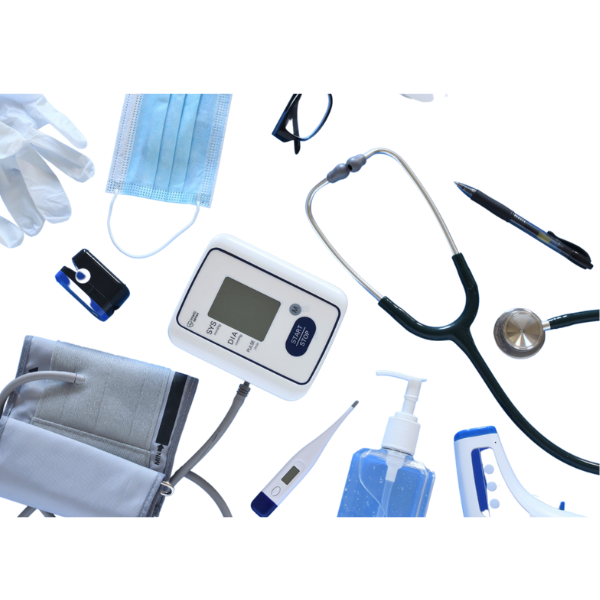

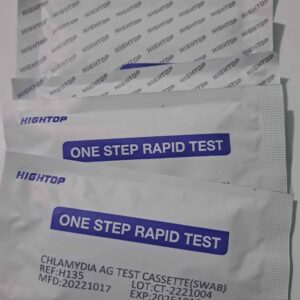



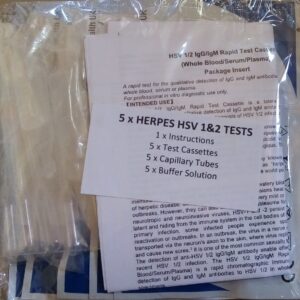
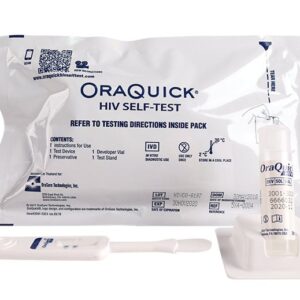
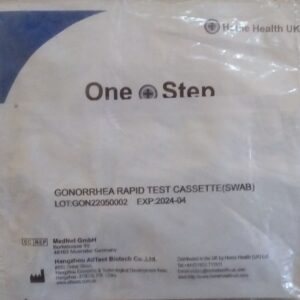
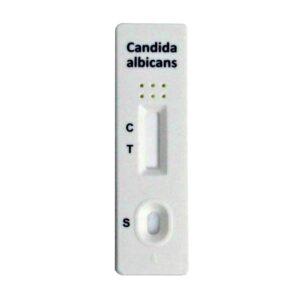

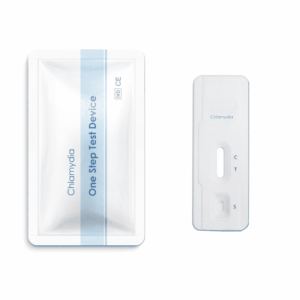

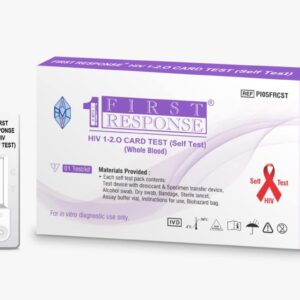

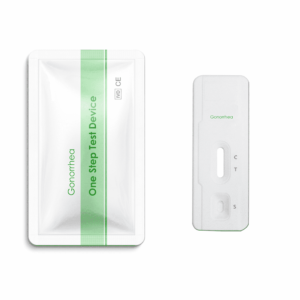
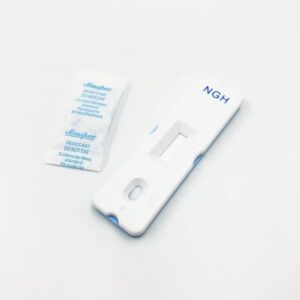
 No products in the cart.
No products in the cart.